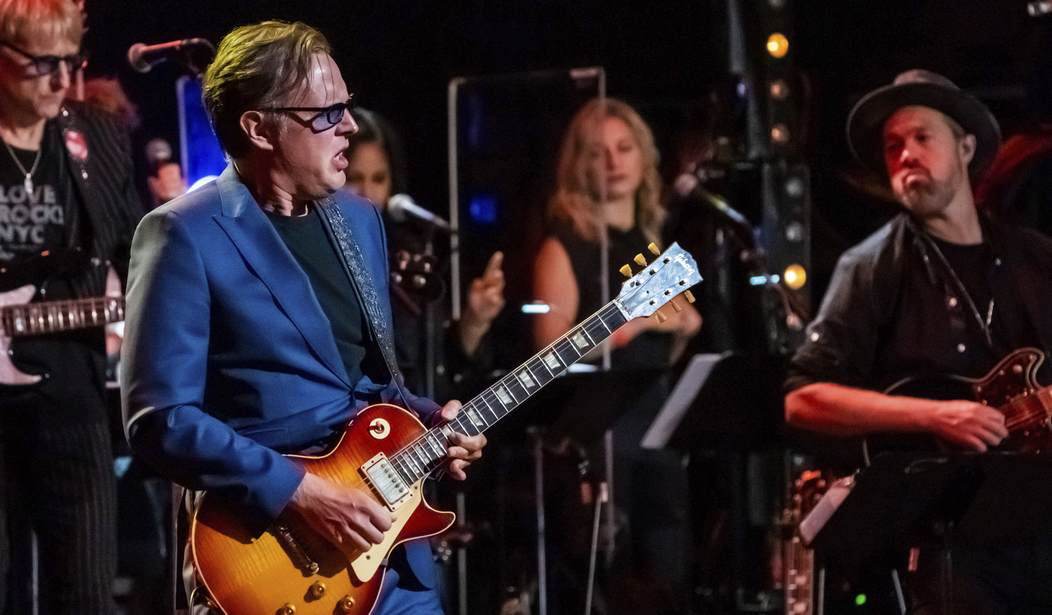Blues guitarist Joe Bonamassa has commented regarding the financial issues facing songwriters and artists in a world where industry reports note over 1 trillion song streams in the first few months of 2023, streaming overwhelmingly the manner music listeners use to please their ears.
Luminate’s 2023 Midyear Music Report measures statistics using “album-equivalent sales,” a figure used to equate a certain number of streams or partial sales to one traditional album sale. Luminate proclaims 7.9% of 2023’s album-equivalent sales come from physical copies, compared to 2.9% for digital purchases.
It must be stated that this combined 10.8% consumption for music ownership is up against on-demand audio streaming, which occupies 83.3% of industry total album-equivalent consumption.
Bonamassa notes:
I know musicians, songwriters in Nashville that have had 25, 30 million spins on Spotify or Pandora — wherever they think — and then it got a check as a principal writer for the song for $750. Now, you tell me how that pays the bills.
They are now systematically telling people that creativity and artwork is free; devaluing it, keep devaluing it.
And they ... and then they go back retroactively and say, “We paid you too much last year.” Really? You paid us too much?
The last time I checked, producing a record ... cost is exactly the same as it did in 1990. The studio time costs exactly the same as it did in 1990. The musicians cost exactly as much as they did in 1990. And the physical product costs about as much as it did back in the day. So, you tell me how that actually helps.
Oh, well, you got 50 million spins. Maybe you can get a clothes company to give you a free pair of jeans, and they’ll sponsor your Instagram page.
That’s the Kardashian-ification of music.
Pop music has long been disposable fluff designed for the here and now, earmarked for dismissal in 15 minutes when the next latest fad comes along. The difference between then and now, "then" being defined as the latter 1960s through the 1970s, is that short of patiently waiting in front of a radio with your portable cassette deck's microphone in hand for "that" song to come along, you had to either buy the record or borrow a friend's purchased copy so you could tape it to have a copy available for on-demand listening. The sound quality was universally dreadful whenever cassettes were concerned, but at least you had a copy, and more often than not there was at least one purchase involved.
Today? Courtesy of either a nominal monthly subscription fee or completely free if you don't mind advertisements, you can listen on demand to any song whenever you want until you get tired of it and move on. There is no need to buy a copy or a download. Unsurprisingly, this business model pays little to content creators. In 2022, a song would have to stream 314 times on Spotify for the artist to earn one dollar. It hasn't improved in the past two years. On Spotify, starting in 2024, a song that receives fewer than 1,000 streams in a year will receive no payout at all.
There are those who point out the wisdom of a DIY approach.
If you’re not entirely convinced, let’s do some simple math. While these numbers may not directly apply to each person individually, they help to illustrate the benefit of taking power into your own hands.
Spotify’s current royalty rate is about $0.0024 per 1 song stream. If 1 song generates 1,000,000 plays in a year, the artist will gain $2400 for that 1 song (not including any fees related to distribution or record labels, which cuts into profit).
However, save for those who place a high value in their lives on music and its pursuit instead of lazily consuming whatever the industry currently pushes, no one is going to hear artists outside the mainstream, even if their music fits snugly inside presently popular realms. Also, getting the word out about yourself by playing live is becoming unaffordable for artists and fans alike, due to insanely high transportation, i.e., fuel, costs, and inflation's crushing weight vaporizing whatever disposable income was previously available for entertainment.
A society without quality art is a society in decline. As Joe Bonamassa succinctly puts it, the Kardashian-ification of music — and how fitting is it to note this on the day of OJ Simpson’s death, whose murder trial played a significant part in pushing the Kardashian family into pop culture’s consciousness? — has led to an era when one has little if any chance to find bands or artists that, although most likely not entering the realm of giants such as Led Zeppelin or Lynyrd Skynyrd, provide value, entertainment, and the enriching edification that quality art brings to heart, mind, and soul. There is new music out there worth hearing. But it's increasingly hard to find, as artists creating such music find it increasingly difficult to do so and simultaneously pay the bills.
Jesus said, “He who has ears to hear, let him hear.” We have ears, but it is regrettably becoming ever harder to find people who can afford to make something worth hearing.















Join the conversation as a VIP Member